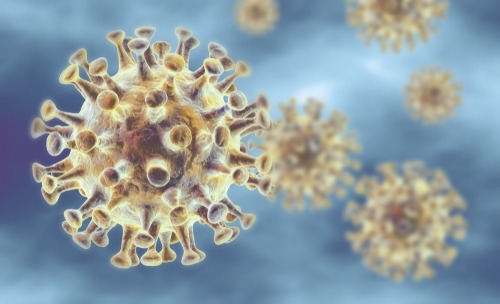
A pair of monoclonal antibodies (mAbs) developed by Regeneron have shown promising signs against the coronavirus that causes Middle East respiratory syndrome (MERS) in a phase one clinical trial that marked the first such test conducted on people.
In all, the National Institute of Allergy and Infectious Diseases (NIAID)-sponsored trial pulled in 48 healthy adults for testing in California. Each was given either the mAbs — REGN3048 and REGN3051 — or a placebo by intravenous infusion. The participants were then followed for 121 days after injection, during which time no serious adverse effects were reported.
Previous preclinical studies conducted by the University of Maryland and Regeneron directly found that the antibodies reduced the levels of the virus later detected in the lungs of genetically modified mice. Co-administration was deemed to provide better protection than either mAb alone. Injecting both one day after MERS CoV exposure also lowered viral levels and reduced tissue damage in the lungs compared to mice that received only a placebo.
Between the phase one and preclinical results, researchers concluded that the mAbs show potential efficacy and utility for the prevention or treatment of MERS-CoV. This, they determined, encourages the development of spike-targeted mAb therapies for other infectious disease threats, such as SARS-CoV-2, which spawned the ongoing COVID-19 pandemic.




